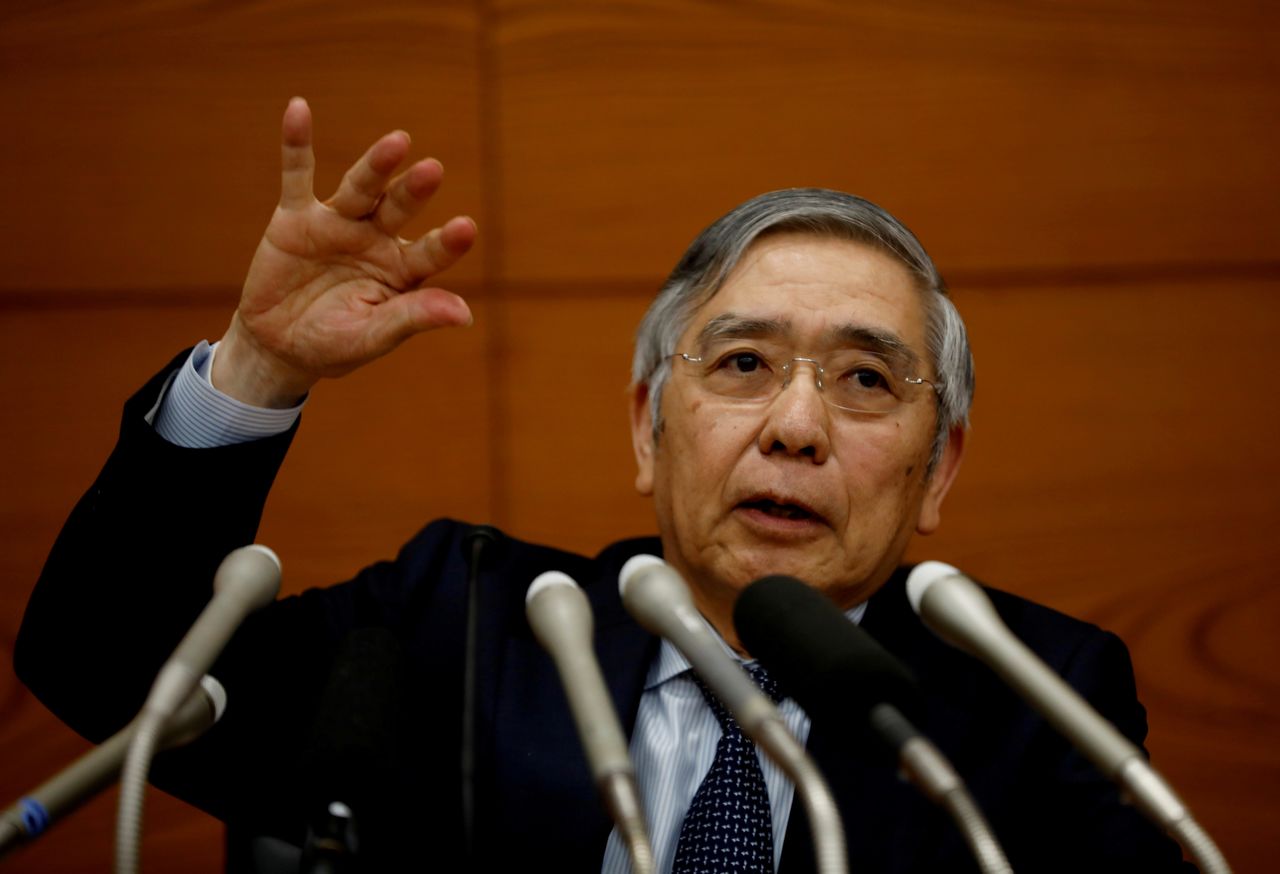Critic of Kuroda warns BOJ has little discretion over stimulus exit
Newsfrom Japan
Economy- English
- 日本語
- 简体字
- 繁體字
- Français
- Español
- العربية
- Русский

FILE PHOTO: Bank of Japan Governor Haruhiko Kuroda speaks at a news conference in Tokyo, Japan, December 19, 2019. REUTERS/Kim Kyung-Hoon/File Photo
By Leika Kihara and Kentaro Sugiyama
TOKYO (Reuters) - The Bank of Japan has little discretion over how and when to dial back stimulus given the huge scale and radical nature of its policies, said Kunio Okina, an academic known as a vocal critic of Governor Haruhiko Kuroda's monetary experiment.
Having failed to meet its 2% inflation target for nearly a decade, the primary role of the BOJ has turned into supporting fiscal policy by capping the cost of funding Japan's huge public debt, said Okina, a former BOJ official and a prominent academic who retains close contact with incumbent policymakers.
"The most important job for the BOJ going forward is to help finance Japan's fiscal policy because there's not much monetary policy can do to battle another crisis," Okina said.
Given the BOJ's crucial role in keeping the cost of funding Japan's huge debt low, an exit from ultra-loose policy will be years away and require the government's consent, he said.
"An exit strategy may be necessary. But that's no longer something the BOJ can decide independently," Okina told Reuters in an interview on Wednesday.
Hand-picked by then-prime minister Shinzo Abe to fire up inflation to 2%, Kuroda deployed his "bazooka" asset-buying programme in 2013 followed by a range of unorthodox monetary easing steps to prop up economic growth.
But the wall of money failed to accelerate inflation, forcing the BOJ to maintain its huge stimulus longer than expected and shift in 2016 to a policy that caps long-term interest rates around 0%.
After years of heavy buying, the BOJ now owns half of Japan's government bond market. It also buys risky assets such as exchange-traded funds (ETF) with holdings ballooning to roughly 50 trillion yen ($454.50 billion), making it the biggest holder of Japanese shares.
"Having ventured into steps that are so radical, it won't be easy to normalise monetary policy" even after Kuroda's term ends in 2023, said Okina, now professor at Otsuma Women's University.
"The BOJ has very little manoeuvering room or jurisdiction over its next move, including on when to exit easy policy."
($1 = 110.0100 yen)
(Reporting by Leika Kihara and Kentaro Sugiyama; Editing by Michael Perry)
(c) Copyright Thomson Reuters 2021. Click For Restrictions -
https://agency.reuters.com/en/copyright.html